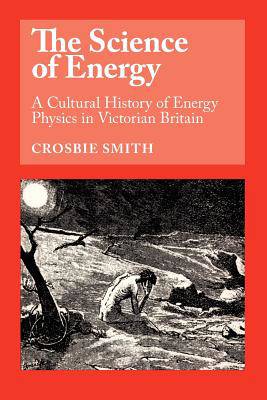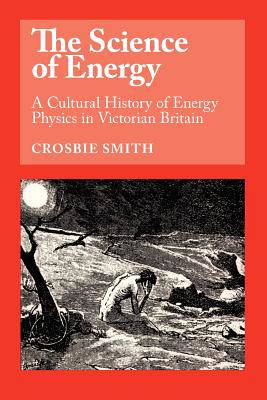
- Afhalen na 1 uur in een winkel met voorraad
- Gratis thuislevering in België vanaf € 30
- Ruim aanbod met 7 miljoen producten
- Afhalen na 1 uur in een winkel met voorraad
- Gratis thuislevering in België vanaf € 30
- Ruim aanbod met 7 miljoen producten
Zoeken
The Science of Energy
A Cultural History of Energy Physics in Victorian Britain
Crosbie Smith
Paperback | Engels
€ 94,95
+ 189 punten
Omschrijving
Although we take it for granted today, the concept of "energy" transformed nineteenth-century physics. In The Science of Energy, Crosbie Smith shows how a North British group of scientists and engineers, including James Joule, James Clerk Maxwell, William and James Thomson, Fleeming Jenkin, and P. G. Tait, developed energy physics to solve practical problems encountered by Scottish shipbuilders and marine engineers; to counter biblical revivalism and evolutionary materialism; and to rapidly enhance their own scientific credibility. Replacing the language and concepts of classical mechanics with terms such as "actual" and "potential" energy, the North British group conducted their revolution in physics so astutely and vigorously that the concept of "energy"--a valuable commodity in the early days of industrialization--became their intellectual property. Smith skillfully places this revolution in its scientific and cultural context, exploring the actual creation of scientific knowledge during one of the most significant episodes in the history of physics.
Specificaties
Betrokkenen
- Auteur(s):
- Uitgeverij:
Inhoud
- Aantal bladzijden:
- 411
- Taal:
- Engels
Eigenschappen
- Productcode (EAN):
- 9780226764214
- Verschijningsdatum:
- 26/02/1999
- Uitvoering:
- Paperback
- Formaat:
- Trade paperback (VS)
- Afmetingen:
- 155 mm x 232 mm
- Gewicht:
- 530 g

Alleen bij Standaard Boekhandel
+ 189 punten op je klantenkaart van Standaard Boekhandel
Beoordelingen
We publiceren alleen reviews die voldoen aan de voorwaarden voor reviews. Bekijk onze voorwaarden voor reviews.








